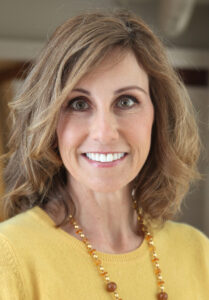Who: Dr. Janine Stichter, professor of special education, MU College of Education
Bio: Dr. Stichter grew up in Davenport, IA and received her education from the University of Iowa. Dr. Stichter has been on the University of Missouri faculty since 2002 and has been involved with the Thompson Center since its inception in 2005, serving as an associate director of the Thompson Center for several years.
What are your research Interests?
“My primary focus is on behavior change to support increased use of prosocial behavior. In other words, I’m really interested in developing the social competence of those experiencing challenges getting their needs and wants met within the context of daily life. Much of my recent work has been targeted in the areas of social skills assessment and interventions for children with Autism Spectrum Disorder and similar social behavior needs. Specifically, through my research, my team and I have developed the Social Competence Intervention (SCI), which is an evidence-based intervention for children with special needs to teach them important social skills. We also have developed the General Social Outcome Measure (GSOM) to help us measure the effectiveness of social skills interventions. We hope this measure will help teachers determine the progress of their special needs students so they can adjust their curriculum accordingly.”
How did you first get involved with autism research?
“I have always wanted to help connect people in some meaningful manner. As an undergraduate student, I wanted to be a diplomatic interpreter and work for the United Nations. As a side job, I was hired to work at a group home for young boys, all whom had behavior challenges, including some with autism. The job did not require a car, so I thought I would give it a try. I found a whole new world and opportunity to serve others. I also found that I had some natural skills for changing and promoting positive behavior, no matter what language these children were speaking, such as aggressive behaviors or other alternate forms of communication. So in a sense, I am still an interpreter!”
What motivates you to work so hard in this field?
“My happy place is helping people, specifically helping them realize their dreams and potential. I was born in Germany and lived there until I was five years old. English was my second language and I clearly remember what it was like not being understood as a child. I feel like this field represents work to help all of us understand and support one another better. Along the way, I also adopted a son with autism and cognitive impairments. Through those experiences, I have come to understand that the need is always real and to celebrate every moment, even when those moments don’t necessarily represent what we had planned.”


